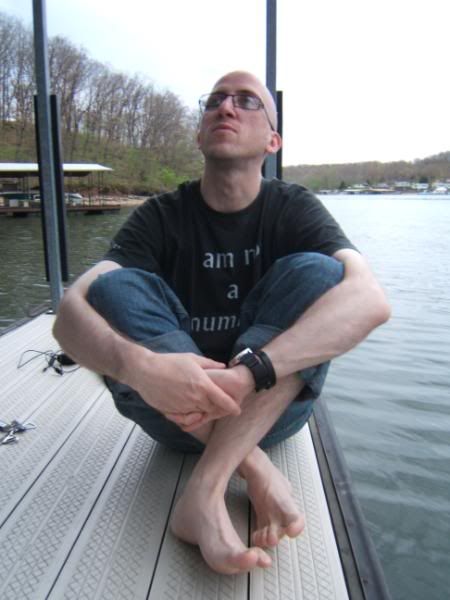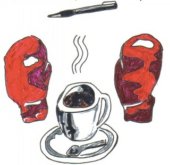Smiles. Through flames. Yes, he does. A picture develops under a skin of chemicals. Snap. The moments aren’t quite joined up, fragile like a baby’s skull; pressure distorts the shape. And he moves through images like someone bursting through one of those hoops with tissue paper they sometimes use in clown acts, he thought it was.
He knew that somewhere scripts were pushing the direction of his footfalls. He knew that somewhere edits were pushing back. He was not a sympathetic character – he knew this, but he hadn’t run across many heroes … they were few and far between as far as he could discern.
He pressed each finger against the glass carefully – he did not wish to smudge the prints. Treat every act in your life like it is a potential crime scene. Why was that important? He wanted to make an impact, always. He had a strange sense of the world around him and himself.
The newspaper talked of him – a constant chatter which he had to work hard to tune out. How could he be villain though, if there was nothing he was doing except following around? He circled the word thoughtcrime in his battered copy of 1984. He thought long and hard about many things.
Death came from a rumour. He wasn’t sure who spread it, but it pushed out of the cocoon of its quotation marked genesis, and flapped its chaos butterfly wings to push towards oblivion on eddies that became tsunami. Bang bang. His suit ignited. And he dreamed that he was a phoenix, in moments where he was bleeding out, and … and … back to the beginning. The worm swallowed its tale.
What had he been doing? Who was he? Fingerprints in a room where nothing happened.
His sister wrote a little story about him where he had learned to eat fire. He fell asleep every night in a bed full of ribbons. They had said that he had done things – stolen ideas, wrote them out as his own – but the truth was, his death was the only act of plagiarism he had ever been involved in. It was strange. It was strange.
The gun fires. The fires burning. He gets fired. He gets shot. A photograph.
Filed under: flash fiction, literary, Prose, Short Story, update | Tagged: fiction, flash fiction, literature, muse hick, musehick, paul grimsley, Prose, skull cull, story, tale, update, writer, writing | Leave a comment »

























